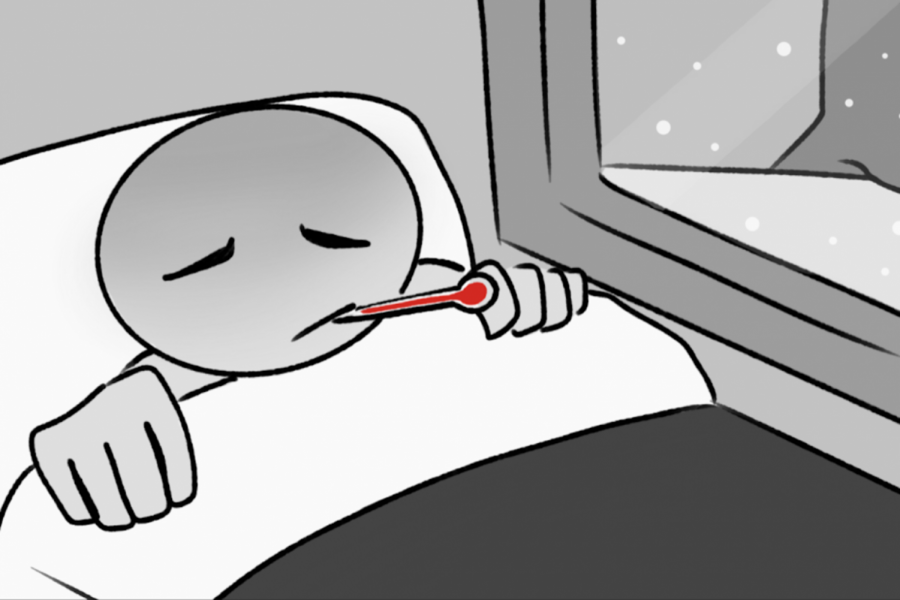Prevention and treatment of common illnesses at EHS
December 24, 2018
Edina High School is currently seeing a spike in illnesses like the common cold. Although the illnesses spreading at this time of year are not as severe as influenza or the polio-like illnesses that were spreading earlier in the fall, it is still important to prevent and properly treat these illnesses.
Fortunately for EHS students, many of these illnesses can easily be prevented. “Wash your hands! That’s probably the number one thing to prevent the spread of not only influenza but also common colds,” school nurse Gretchen Gosh said.
In the school environment, germs are easily spread through shared spaces like desks, closed classrooms, and even doorknobs. By washing their hands regularly, students can not only protect themselves from catching illnesses, but they can also prevent any illness they may have from spreading to others.
Many students don’t have time to go to the bathroom and wash their hands during passing time, but there are still alternative ways to clean your hands during the school day. “[You can] use a hand sanitizer in between classes that you keep in your backpack,” Gosh said.
In addition to cleaning your hands regularly, it is also important to clean any surfaces you come into contact with often, such as your phone or your computer. “I have some kids that carry around Lysol wipes. Every day when I leave work, I Lysol wipe my phone and my Apple watch before I go home because those are carriers of some of these contagious bacterial germs,” Gosh said.
Even if prevention measures fail and students catch these illnesses, there are many ways to treat illnesses like the common cold. It is recommended that students stay at home and take over-the-counter medication to treat their illness. “If symptoms [of a fever] persist for over 48 hours and do not respond to over the counter medicines, it’s best to go in and get seen by a physician,” Gosh said. If students don’t have a primary care physician, urgent care or a minute clinic are also good options.
When you have an illness, it’s important to stay at home and allow your body to recover instead of going to school. “Edina has a policy called the 24-hour rule. If you have a fever and you are taking medications and you still continue with that fever, you should not come to school. If you vomit, have a fever, or have diarrhea, it’s best to stay at home for 24-hours and be symptom-free without medications [before coming back to school],” Gosh said.
Many students choose to go to school, even when they’re sick, but the school nurses strongly advise against this. “Kids try to push back because of the stresses of school, come back and be in class, but really they’re spreading germs to all of their other classmates,” Gosh said. By staying at home, you not only let yourself recover quicker, but you can also prevent these illnesses from spreading further.


